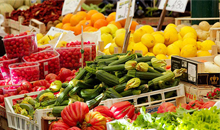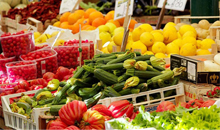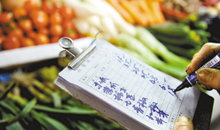China's inflation within 'comfortable range'
China's consumer price index (CPI), a main gauge of inflation, grew 2.3 percent year on year in July, the same pace as a month earlier, official data showed on Saturday.

China's consumer price index (CPI), a main gauge of inflation, grew 2.3 percent year on year in July, the same pace as a month earlier, official data showed on Saturday.
The growth rate was also the same as that of the first half of this year, showing stable pricing in the world's second-largest economy, according to the National Bureau of Statistics (NBS).
In July, inflation grew 2.4 percent in urban areas and 2.1 percent in rural areas, NBS data showed.
Food prices, which account for about one third of the weighting in the CPI calculation, grew 3.6 percent year on year in July, down from 3.7 percent in June.
The Chinese government aims to hold consumer inflation at around 3.5 percent this year.
Yang Hongxu, deputy head of the Shanghai-based E-House China R&D Institute, said the July inflation was "in a very comfortable range."
"Residents will feel the pain if inflation goes too high, but the economy and companies will suffer if it is too low. CPI at about 2 percent is an ideal level," Yang said.
The cooling housing market would also be conducive to ensuring steady consumer prices, he added.
Residential prices, which cover those for rents, utilities and building materials, grew by 2 percent year on year amid a weakening property sector.
NBS data showed that growth in property development investment slowed to 14.1 percent in the first half from 20.3 percent in the same period of 2013, and housing sales dropped 6 percent year on year in the first six months.
On Saturday, the NBS also released the producer price index (PPI), which measures inflation at wholesale level. The PPI dropped 0.9 percent year on year in July.
It had dropped for 29 months in a row, but the pace of decline has narrowed for four consecutive months, pointing to slight improvement in market demand for industrial products.
Wu Xiaoqiu, president of the Financial and Securities Institute of Renmin University of China, said the CPI and PPI figures showed that China's economic growth is relatively stable and will continue to see a steady upward trend.
Faced with great downward pressure, the government has adopted a raft of pro-growth measures, including stepping up construction of affordable housing, infrastructure building and encouraging private investment.
China's economy expanded by 7.4 percent in the first half, but the growth rate accelerated slightly to 7.5 percent in the second quarter from 7.4 percent in the first. The pace was generally in line with the government's full-year target of around 7.5 percent.
"Food price rises are the major contributor to the July consumer price increase, and a slight month-on-month rise in CPI indicates improved economic activity last month," Wu said. The July CPI was up by 0.1 percent on a month-on-month basis.
He forecast that the CPI will stay at around 2.5 percent without any large fluctuations in the second half of 2014 and that there will not be great pressure for reaching the target of holding CPI at about 3.5 percent.
Guan Qingyou, senior analyst at Minsheng Securities' research institute, said inflation pressure would grow in the final quarter to around 3 percent by the end of this year, as food prices may go up due to short pork supply and severe droughts in some regions.
In the latter half, the government is not likely to loosen up on its monetary policy, Guan said.





 沪公网安备31010402003309号
沪公网安备31010402003309号



